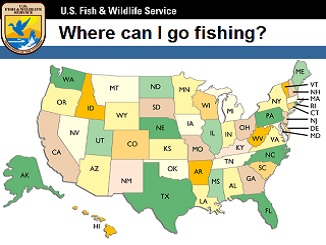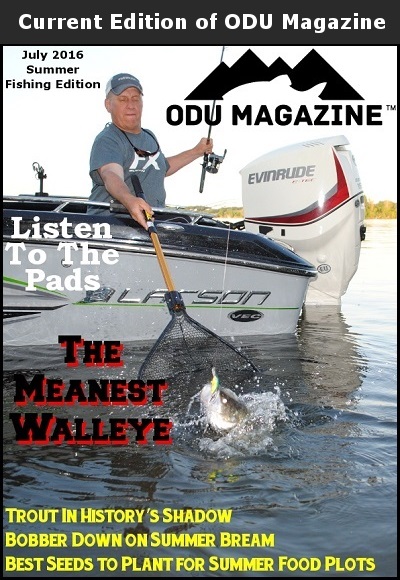 New hunting and angling opportunities on national wildlife refuges provide increased public access for sportsmen during a time when access is shrinking, said Backcountry Hunters & Anglers, commending a decision by the U.S. Fish and Wildlife Service to expand hunting and fishing on 13 national wildlife refuges in nine states.
New hunting and angling opportunities on national wildlife refuges provide increased public access for sportsmen during a time when access is shrinking, said Backcountry Hunters & Anglers, commending a decision by the U.S. Fish and Wildlife Service to expand hunting and fishing on 13 national wildlife refuges in nine states.USFWS Director Dan Ashe announced the proposal, which encompasses migratory bird, upland game and big game hunting opportunities, as well as sport fishing, and would modify existing regulations on more than 70 other national wildlife refuges and wetland management districts.
BHA President and CEO Land Tawney welcomed the announcement from Director Ashe.
“National wildlife refuges occupy a special place in the hearts of most American hunters and anglers,” said Tawney, who has hunted waterfowl on refuge system units his entire life. “Our refuge system provides accessible, high-quality fish and wildlife habitat, as well as havens for sportsmen to experience solitude and tranquility – experiences central to our identity as public lands recreationists.
“Public lands also play a central role in the Backcountry Hunters & Anglers mission,” continued Tawney. “We’ve stood up for them, consistently and strongly, and will continue to defend the right of citizens to partake of the wealth of opportunities they offer. Our thanks go to the Service and Director Ashe for his unwavering dedication to sustaining – and expanding – these opportunities.”
BHA members in Colorado commended the announcement, whereby elk hunting would be opened for the first time in parts of Baca National Wildlife Refuge and expanded in the Alamosa and Monte Vista national wildlife refuges. All three refuges are located in the Centennial State.
 “Enjoying our public lands – including by hunting and fishing – is a way of life in Colorado,” said David Lien, chair of BHA’s Colorado chapter. “Expanding hunting opportunities on the Alamosa and Monte Vista national wildlife refuges, as well as opening the Baca National Wildlife Refuge, currently closed to public use, to bird and big-game hunting, is some all-too-rare good news for sportsmen. We applaud the Fish and Wildlife Service for its commitment to the responsible management of our nation’s refuges, and we thank Director Ashe for upholding our outdoor traditions.”
“Enjoying our public lands – including by hunting and fishing – is a way of life in Colorado,” said David Lien, chair of BHA’s Colorado chapter. “Expanding hunting opportunities on the Alamosa and Monte Vista national wildlife refuges, as well as opening the Baca National Wildlife Refuge, currently closed to public use, to bird and big-game hunting, is some all-too-rare good news for sportsmen. We applaud the Fish and Wildlife Service for its commitment to the responsible management of our nation’s refuges, and we thank Director Ashe for upholding our outdoor traditions.”The Michigan chapter of BHA highlighted the importance of the announcement to sportsmen in the Wolverine State.
“The Detroit River International Wildlife Refuge is located within the greater Detroit metropolitan area, a place with limited public lands hunting access,” said Jason Meekhof, chair of BHA’s Michigan chapter. “An expansion of opportunity here will be of great value to an area where quality hunting options are scarce – and will be particularly important to waterfowlers due to the vast amount of birds that travel and live within this corridor. Michigan public lands sportsmen enthusiastically support the U.S. Fish and Wildlife Service decision.”
Sportsmen cite insufficient access as the No. 1 reason for forgoing time afield. National wildlife refuges provide valuable opportunities for time afield during an era where sportsmen’s access is steadily decreasing. Regulated hunting is permitted on 336 wildlife refuges, and fishing is permitted on 275 refuges. They play an important role in managing fish and wildlife populations on many refuges.
Public comments on the changes are invited before Aug. 15, 2016. For more information and to submit comments, visit www.regulations.gov and reference docket no. FWS-HQ-NWRS-2016-0007.
Backcountry Hunters & Anglers is the sportsmen’s voice
for our wild public lands, waters and wildlife.
for our wild public lands, waters and wildlife.
